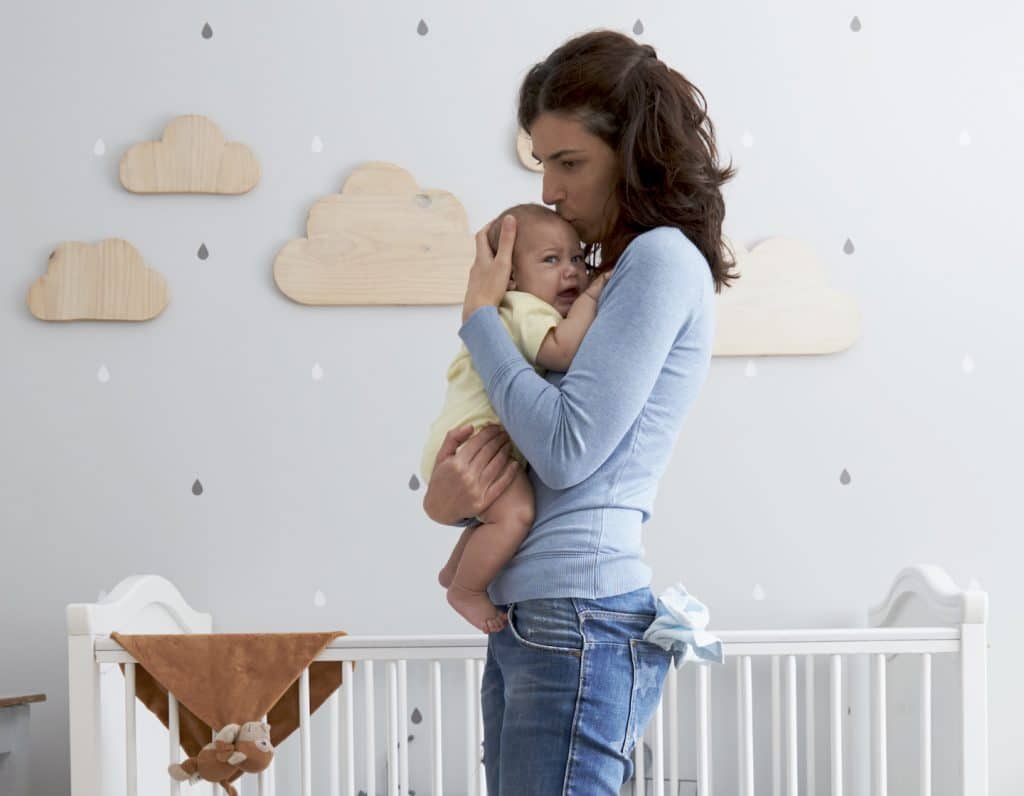
 Post Category - ParentingParenting - Post Category - BabyBaby
Post Category - ParentingParenting - Post Category - BabyBaby Post Category - WellnessWellness - Post Category - HealthHealth
Post Category - WellnessWellness - Post Category - HealthHealthFeeling super anxious postpartum? You are not alone! This mama bravely shares her personal experience with Postpartum Anxiety, what to look for, and how to get help
Singaporean mama Jamie Lee talks about her experience with Postpartum Anxiety, including the warning signs and treatment options, and her ongoing struggle to shake any perceived stigma of mental illness. And she is a stronger mama to her son because of it!
I’ve lived with anxious thoughts all my life. But not quite the kind I experienced after the birth of my son, Noah when my anxiety spiralled. I had a smooth and enjoyable pregnancy. At 38 weeks, I delivered a healthy baby boy within 7 hours of admission. Everything was going as planned and I couldn’t wait to finally embark on my journey as a mother. It was perhaps because things had gone so well that I was unprepared for what was to come.
During confinement, I had the usual worries about Noah’s milk intake, diaper output, and overall health. While these recurred throughout my day, these worries were manageable. It was not until I found myself bawling in my office toilet when I returned to work that I realized these thoughts were morphing into something more insidious.
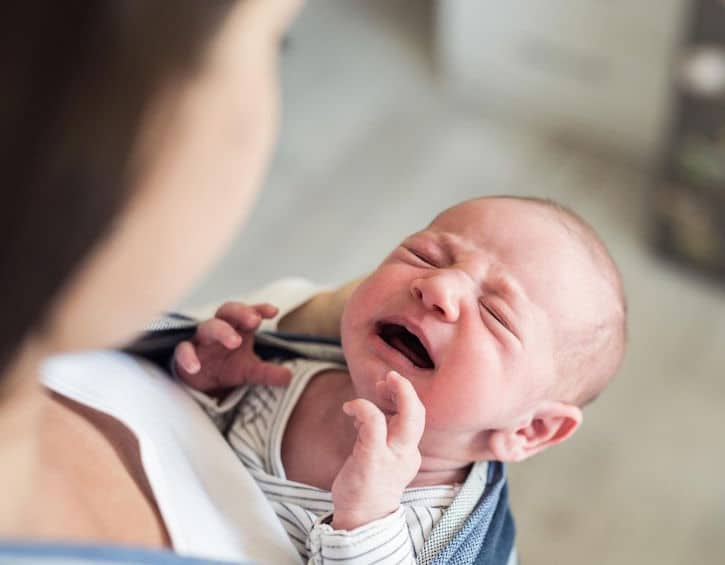
During this episode, I saw a video of a child drowning in a baby spa because he was left unsupervised and I had thought it was Noah. My hands were shaking, my heart was racing, my chest tightened, and I was gasping for air. It took me a good few minutes to realize that it wasn’t Noah.
I knew something wasn’t quite right and became more aware of my thoughts and actions. I realized I was afraid to stand near windows while carrying Noah, regardless of whether they were opened or closed. I refused to step foot in my service yard because I had very vivid thoughts of him falling fifteen storeys. I would read horrifying news about how someone had bludgeoned a cat to death and worried this person would find my son. I would stay awake at night to ensure Noah was breathing as he slept. And when I did sleep, I had nightmares of him drowning in a bathtub because I left the water running.
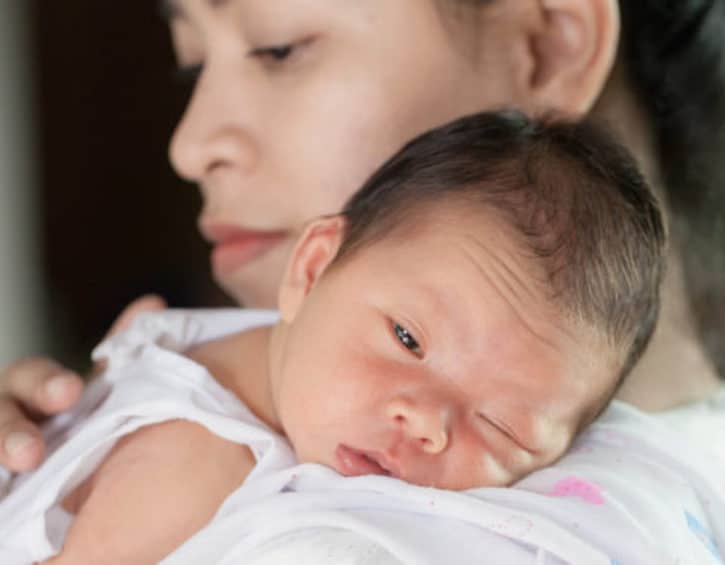
I was afraid to talk about this because these thoughts seemed too gruesome for someone who had just welcomed her bundle of joy. But when a friend reached out, I plucked up the courage and confided in her. She encouraged me to see a psychiatrist and even accompanied me to the hospital. It was then that I was told my symptoms sounded like I had postpartum anxiety.
Read More: Postpartum Depression Resources for Mamas in Singapore
While I was familiar with postpartum depression, I was not at all aware of postpartum anxiety. Since then, I did some research and have four reasons why it is important we talk about this.
1. It’s a Hidden Disorder
In this article, postpartum anxiety is defined as when women have “a lot of fear, tension, poor concentration…and they’ll have a lot of intrusive, unwanted persistent thoughts, images, fears of the baby being harmed.”
Unlike symptoms of postpartum depression such as persistent sadness, worrying about your baby may seem normal to many, if not all, mothers. It is because of this perceived normalcy that postpartum anxiety is harder to recognize and often goes unnoticed by both mothers and the people around her. And while hospitals are equipped with the necessary screening tools to identify mothers with postpartum depression, that’s not the case for postpartum anxiety.
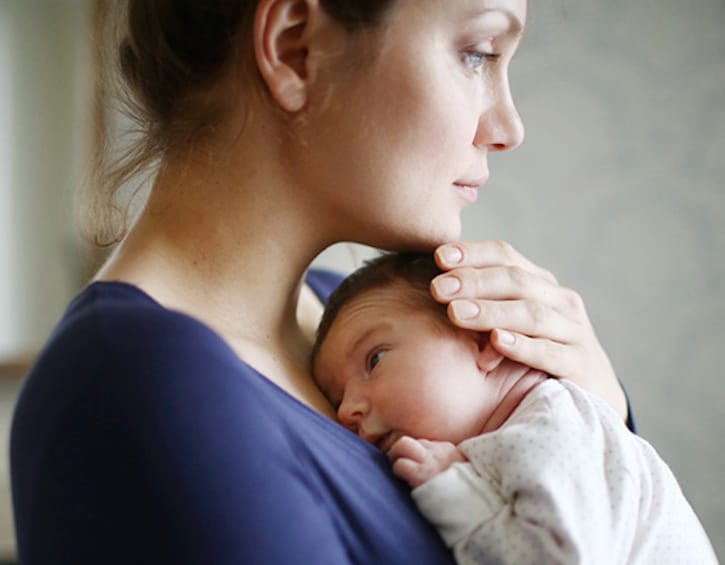
2. The Goddess Myth
According to TIME Magazine, the Goddess Myth is a rampant ideal that impacts mothers worldwide. It tells mothers, and everyone else, that we are expected to flawlessly journey through motherhood and feel fantastic while doing it. This ideal makes it difficult for mothers to speak freely about their struggles, for fear that they would be seen as an incapable mother unable to handle “normal worrying”.
So on top of poor public awareness, how do we prevent mothers with postpartum anxiety from falling through the cracks when the very source of this anxiety – the mother herself – thinks it’s unsafe to talk about?
3. A Higher Prevalence
While most research focuses on postpartum depression, not much focuses solely on postpartum anxiety. Results from the few studies done have shown that this disorder occurs more often in mothers than postpartum depression. For example, in a follow-up study of 310 Canadian pregnant women, postpartum anxiety was three times more common than postpartum depression. In another study done on 1,024 postpartum women, the percentage of women diagnosed with postpartum anxiety was twice as high.
4. Equally Debilitating
Just as with postpartum depression, postpartum anxiety comes with debilitating symptoms. Mothers can have poor eating and sleeping habits and find it difficult to concentrate on the most menial of tasks. It may also manifest in physical symptoms like nausea, breathing difficulties, and panic attacks. In severe cases, medication is needed to cope with daily functioning.
I was offered a prescription of antidepressants and sessions once every two weeks with my psychiatrist, who was not able to give me a definitive answer on whether traces of the drug would be transferred to Noah via breastmilk. The thought of even a small trace worried me enough to reject the idea of medication altogether.
Read More: Guide to Counselling and Therapy in Singapore
I agreed to therapy but later found it difficult to continually take time off work without anyone finding out I was seeing a psychiatrist. However, within those few sessions, I felt a sense of relief that fears I had initially deemed too gruesome to talk about, were spoken out loud, acknowledged, and understood. I was reminded of my strengths and taught how to steer my thoughts in a healthier direction.
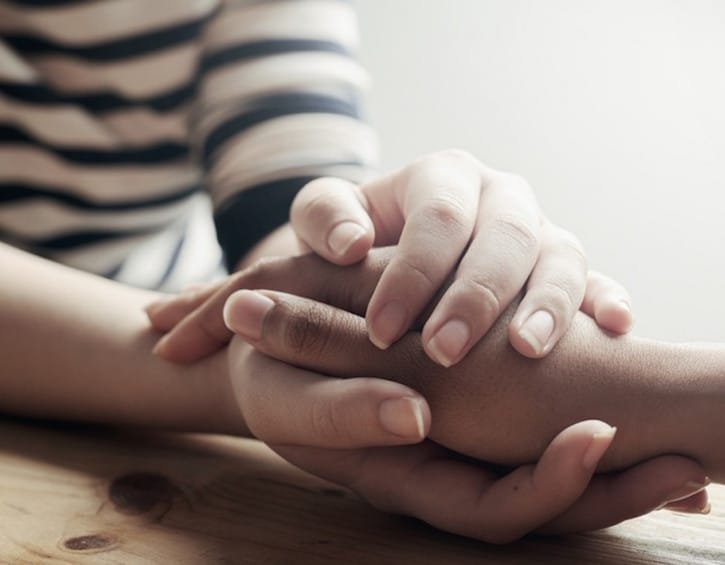
I am still a work in progress. Looking back, I wish I knew it wasn’t “just a new mom thing,” or that I had to pull myself together on my own to be seen as a good mother. My only regret was not seeking treatment earlier because seeing a Psychiatrist meant I had a clearer understanding of what I had and how I was going to recover.
On top of medication and therapy, there are other resources that help support women who struggle with mental health issues. Mothers, if you have the slightest inkling that you may be suffering from postpartum anxiety, reach out. Nobody needs to do this alone and mama, you are no exception.
If you are looking for more information, mamas, consider reaching out to the Women’s Emotional Health Service at NUH or consider calling the AWARE helpline at 1-800-774-5935.






 View All
View All




 View All
View All









 View All
View All








